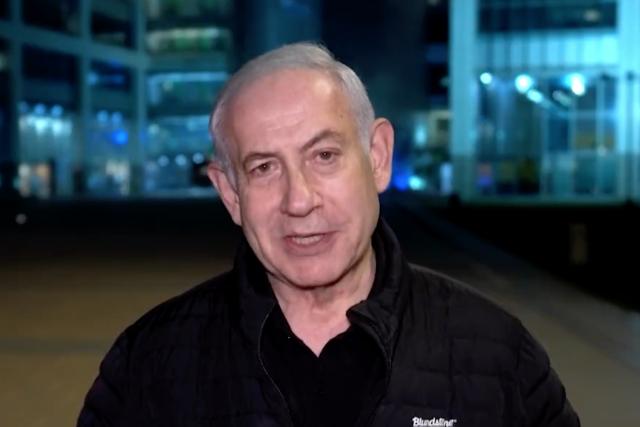Israel, in welcoming its citizens back from captivity and adhering to a tenuous ceasefire, is confronted with challenging decisions regarding its ongoing conflict with Hamas.
Since 2007, Hamas has governed Gaza and led significant assaults against Israel, most notably on October 7. Israeli officials, determined to dismantle Hamas, have also been focused on rescuing approximately 240 individuals abducted by Hamas and other Palestinian factions.
Dear @SecBlinken & @netanyahu - #Hamas have ignored so many of the #ceasefire agreements that if they want to continue, they should release #Bibas family TODAY#BringThemBackHomeNow pic.twitter.com/hhHYFZHVnB
— Ori Shadmon | אורי שדמון 🎗🇮🇱 🟦 (@OJShadmon) November 29, 2023
Prime Minister Benjamin Netanyahu has defended the ceasefire, even in the face of growing discontent within his own coalition, citing it as crucial for the safe return of Israeli hostages, while also indicating Israel's military preparedness to resume operations post-ceasefire.
However, this pause may allow Hamas to strengthen, complicating Israel's goal of eradicating the group. Concurrently, the release of Palestinians as part of the ceasefire has sparked an increase in support for Hamas in Palestinian controlled areas in Judea and Samaria.
Last night in Ramallah, Hamas and Fatah flags and chants of violence and bloodshed as terrorists were released from prison. pic.twitter.com/MEHF3aPQ3D
— Chaim • חיים (@ChaimSmierc) November 29, 2023
The ceasefire extension has facilitated humanitarian aid to Gaza's 2.2 million residents, many of whom are displaced and facing severe shortages due to the conflict.
The ceasefire, extended to six days following Qatar's mediation, remains fragile with Hamas violating it several times, including an IED attack on Israel Defense Forces positions. Since its initiation, Hamas has released 85 hostages, 61 one which have been Israeli, and Israel has freed 180 Palestinian prisoners.
Israel's military campaign before the ceasefire saw extensive bombardments in Gaza, targeting over 15,000 locations. Hamas has reported over 13,000 fatalities and claims they are all civilians, igniting global criticism over the campaign's impact despite the lack of proof and often debunked claims they have made since the conflict began. Several news outlets have had to retract or even apologize for repeating the disinformation as fact. Israel for their part has claimed they have killed thousands of Hamas fighters.
I’m saving this for later, because someone is going to look very silly when Hamas finally admits the casualties from Israel’s targeted campaign to kill its terrorists. pic.twitter.com/nXNHF9LjtL
— Eylon Levy (@EylonALevy) November 28, 2023
Israel has dropped over 25,000 tons of ordinance on Gaza and if the Hamas numbers are to be true, that translates into less than 0.5 deaths per ton of bombs that were dropped. To understand the meaning of this, in World War 2 the number averaged at 6 deaths per ton in Dresden or 9 deaths per ton in Hiroshima. During the battle for Mosul from late 2016 to mif 2017, the number was 8 deaths per ton. This shows Israel has been precise and mindful of civilians in executing their plan.
Israel asserts its strikes are concentrated on Hamas facilities, often located in civilian-populated areas like hospitals and shelters. The Israeli military also initiated a northern Gaza evacuation in anticipation of a ground invasion, capturing significant territory and intensifying efforts to weaken Hamas' control.
The Israeli forces have taken over strategic locations, including Shifa Hospital, under allegations of Hamas utilizing it for military purposes, claims Hamas and hospital staff refute. Despite presenting evidence, Israeli troops proceed cautiously due to potential hazards.
.@BBCNews admitting that it was wrong to question Israel's claims about Hamas tunnels under Shifa hospital 👇pic.twitter.com/hBLMJ5hBwG
— Dr. Eli David (@DrEliDavid) November 23, 2023
Israel reports the destruction of several Hamas tunnels, with no confirmation of combat within them. Israeli official Ron Dermer stated thousands of Hamas militants have been killed since the conflict's onset. Several videos on Hamas affiliated Telegram channels purported to show dozens of Hamas and other militants trapped in tunnels after Israeli airstrikes.
The Israeli military has lost over 70 soldiers since the ground invasion. Hamas, while acknowledging some losses without giving specific numbers, continues to pose a significant challenge.
Israeli leaders have expressed no intention of reoccupying Gaza post-war, yet the complete elimination of Hamas remains uncertain. Meanwhile, in the West Bank, Hamas support is rising, partly due to recent Palestinian prisoner releases and growing disillusionment with the Palestinian Authority.
Hamas' political leadership, beyond Israel's immediate reach, is based in Qatar, with Qatari officials playing a key role in mediating talks involving Egypt and the U.S.


